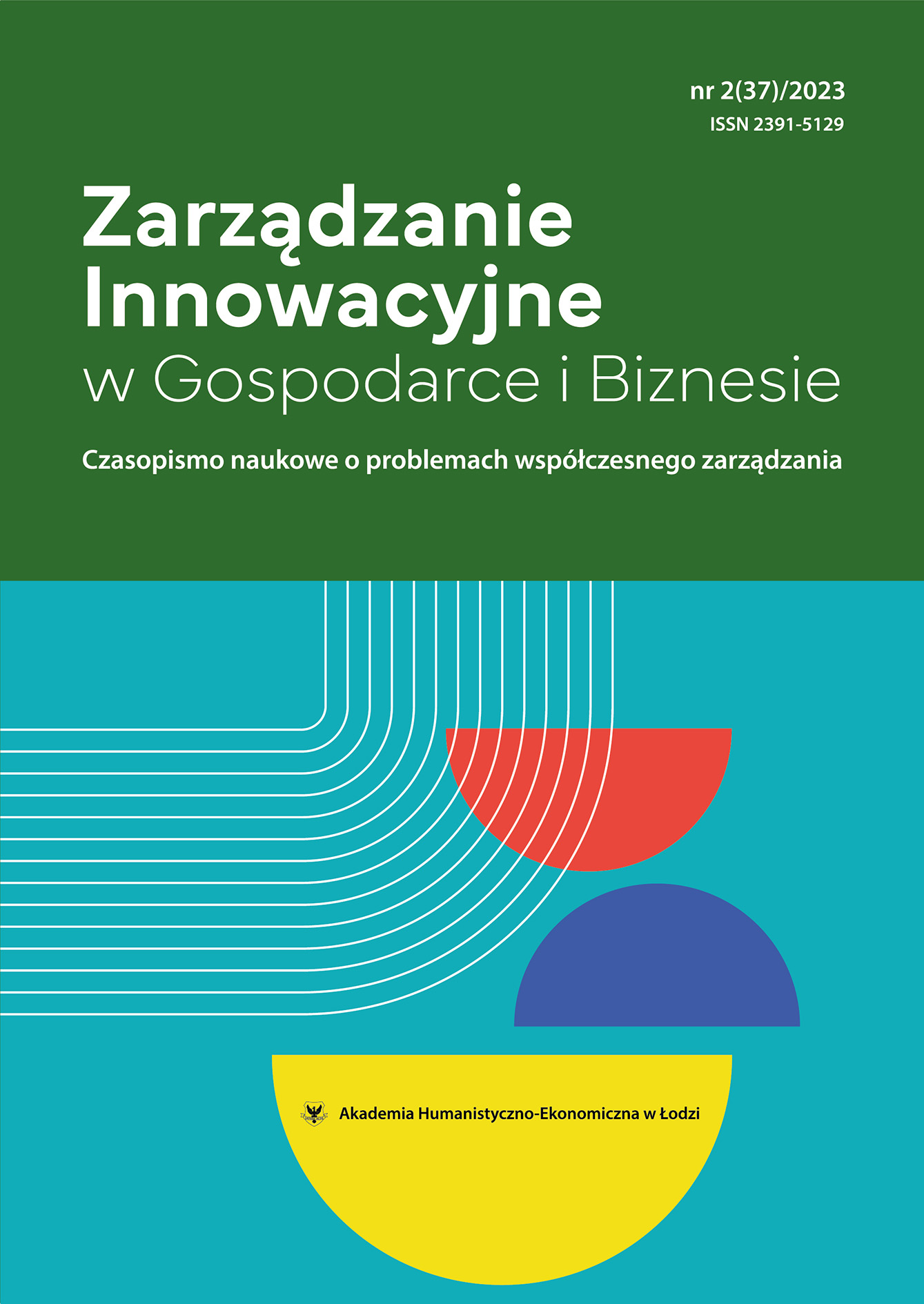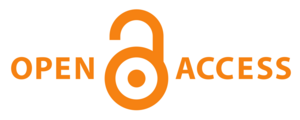Waste management optimization based on research in the manufacturing company Gumres
DOI:
https://doi.org/10.25312/2391-5129.37/2023_06MKMWKeywords:
waste, waste management, optimizationAbstract
The aim of this article is to present the issues related to waste management and the attempts of the manufacturing company Gumres to optimize waste management. In order to achieve this goal, data were used from the company's documents covering waste records and from information obtained during an in-depth interview. In addition, the authors reviewed the literature on waste management. Waste was presented in theoretical terms and the legal aspects of waste management were also considered. The organization of waste management is described. The main part of the article is devoted to the authors' own research on the process of modernization of waste management in a selected company. The profile of the selected company is presented, the identification of the waste generated and the proposal for modernization of waste management are indicated. In the last part of the paper, corrective measures to optimize waste management and final conclusions are detailed.
References
Czakon W. (red.) (2016), Podstawy metodologii badań w naukach o zarządzaniu, Wydawnictwo Nieoczywiste, Piaseczno.
Dulewska Cz.R. (2014), Podstawy gospodarki odpadami, PWN, Warszawa.
Dutta J., Jutrzenka-Trzebiatowska P., Kasprzyk P. (2013), Wybrane zagadnienia recyklingu tworzyw sztucznych i gumy, Wydawnictwo Politechniki Gdańskiej, Gdańsk.
Dyrektywa Parlamentu Europejskiego i Rady 2008/98/WE z dnia 19 listopada 2008 r. w sprawie odpadów oraz uchylająca niektóre dyrektywy, Dz.U.UE.L.2008.312.3.
Ecoportal (2021), http://www.ecoportal.com.pl/utylizacja/definicja-pojecie-odpadu [dostęp: 5.07.2023].
Gabryś A., Sudomir D. (2011), Raport: Kluczowe wyzwania w gospodarce odpadami komunalnymi w krajach UE-11, Wydawnictwo Ernst & Young, Kraków.
Gregulska-Oksińska A. (2021), Użyteczność poznawcza wywiadu jako metody badawczej zagadnienia kontroli zarządczej w jednostkach samorządu terytorialnego, „Prace Naukowe Uniwersytetu Ekonomicznego we Wrocławiu”, vol. 65, nr 3, s. 26–36, https://doi.org/10.15611/pn.2021.3.03.
Grzymała Z., Maśloch G. (2016), Wybrane aspekty gospodarki odpadami w Polsce, „Studia z Polityki Publicznej”, nr 1(9), s. 127–140, https://doi.org/10.33119/KSzPP.2016.1.5.
Hebda M. (2019), Gospodarka odpadami, Wydawnictwo Wiedza i Praktyka, Warszawa.
Hordyńska M. (2017), Ekologistyka i zagospodarowanie odpadów, Wydawnictwo Politechniki Śląskiej, Gliwice.
Jurasz F. (1998), Instrumenty ekonomiczne w gospodarce odpadami komunalnymi, Alfa-Wero, Warszawa.
Kiezik-Kordzińska E. (2011), Czy śmieci to problem?, WSiP, Warszawa.
Kolesnik G.V., Merkulina I.A. (2021), Waste Management of Production and Consumption as an Element of on the Circular Economy, „IOP Conference Series: Earth and Environmental Science”, vol. 666(2), https://doi.org/10.1088/1755-1315/666/2/022064.
Korzeniowski P. (2014), Model prawny systemu gospodarki odpadami. Studium administracyjno-prawne, Wydawnictwo Uniwersytetu Łódzkiego, Łódź.
Kuciński K. (red.) (2010), Metodologia nauk ekonomicznych. Dylematy i wyzwania, Wydawnictwo Difin, Warszawa.
Kupcewicz-Szwoch J., Baur A. (2020), W stronę gospodarki zrównoważonej – wybrane zagadnienia, „Studia i Prace Kolegium Zarządzania i Finansów”, nr 176, s. 9–24, https://doi.org/10.33119/SIP.2019.176.1.
Leboda R., Oleszczuk P. (2002), Odpady komunalne i ich zagospodarowanie: zagadnienia wybrane, Wydawnictwo Uniwersytetu Marii Curie-Skłodowskiej, Lublin.
Leksic I., Stefanic N., Veza I. (2020), The impact of using different lean manufacturing tools on waste reduction, „Advances in Production Engineering & Management”, vol. 15(1), s. 81–92, https://doi.org/10.14743/apem2020.1.351.
Leszczyńska A. (2011), Absorpcja innowacji ekologicznych w przedsiębiorstwie, Wydawnictwo Uniwersytetu Marii Curie-Skłodowskiej, Lublin.
Lipińska D. (2016), Gospodarka odpadowa i wodno-ściekowa, Wydawnictwo Uniwersytetu Łódzkiego, Łódź.
Łatka U. (2009), Technologia i towaroznawstwo, WSiP, Warszawa.
Łobocki M. (2000), Metody i techniki badań pedagogicznych, Oficyna Wydawnicza Impuls, Kraków.
Matušková S., Taušová M., Domaracká L., Tauš P. (2021), Waste production and waste management in the EU, „IOP Conference Series: Earth and Environmental Science”, vol. 900(1), https://doi.org/10.1088/1755-1315/900/1/012024.
Miński R. (2017), Wywiad pogłębiony jako technika badawcza. Możliwości wykorzystania IDI w badaniach ewaluacyjnych, „Przegląd Socjologii Jakościowej”, nr 13(3), s. 30–51, https://doi.org/10.18778/1733-8069.13.3.02.
Mostaghimi K., Behnamian J. (2022), Waste minimization towards waste management and cleaner production strategies: A literature review, „Environment, Development and Sustainability”, vol. 25, s. 12119–12166, https://doi.org/10.1007/s10668-022-02599-7.
Ochrona środowiska 2022 (2022), Główny Urząd Statystyczny, https://stat.gov.pl/files/gfx/portalinformacyjny/pl/defaultaktualnosci/5484/1/23/1/ochrona_srodowiska_2022.pdf [dostęp: 3.08.2023].
Rakoczy B., Dmowska J., Kaczmarek-Ociepa K., Korkowska-Krokos K., Krzyżanowska M.G., Nieć A.E., Sobociński D., Wereśniak-Masri I., Zgoła P.M., Żurowski M. (2019), Prawo o odpadach. Wybrane problemy, Wydawnictwo Wolters Kluwer Polska, Warszawa.
Regins K. (2000), Redefining Innovation - eco-innovation reserch and contribution from ecological economics, „Ecological Economics”, vol. 2(32).
Rosik-Dulewska Cz. (2005), Podstawy gospodarki odpadami, PWN, Warszawa.
Saling J.H. (2001), Radioactive Waste Management, Taylor&Francis, New York.
Serre B.M., McCarthy L.H. (2023), Municipal solid waste management: Production, management, and environmental effects, „Encyclopedia of Soils in the Environment”, vol. 3, s. 321–332, https://doi.org/10.1016/B978-0-12-822974-3.00192-0.
Shuhailo Y.V., Derkach T.M., Shpetna A.V., Ustenko T. (2022), Incorporation of upcycling techniques into technology education, „Journal of Physics: Conference Series”, vol. 2288(1), https://doi.org/10.1088/1742-6596/2288/1/012041.
Siekierski M., Majewska K., Podsiadło S. (2021), Gospodarka odpadami. Termiczne przekształcanie odpadów – spalarnie i współspalarnie, „Mazowsze Studia Regionalne”, nr 38(38), s. 29–50, https://doi.org/10.21858/msr.38.02.
Tallentire C.W., Steubing B. (2020), The environmental benefits of improving packaging waste collection in Europe, „Waste Management”, vol. 103, s. 426–436, https://doi.org/10.1016/j.wasman.2019.12.045.
Ustawa z dnia 14 grudnia 2012 r. o odpadach, Dz.U. 2018, poz. 992.
Wieczorek A., Siekierski M. (2021), Gospodarka odpadami. Instalacje i urządzenia do przetwarzania odpadów, „Mazowsze Studia Regionalne”, nr 36(36), s. 31–44, https://doi.org/10.21858/msr.36.02.
Wijaya S.V., Tarigan Z.J.H., Siagian H. (2023), The role of top management commitment, employee empowerment and total quality management in production waste management and enhancing firm performance, „Uncertain Supply Chain Management”, vol. 11(3), s. 1369–1382, https://doi.org/10.5267/j.uscm.2023.3.011.
Wit B. (2016), Ekologistyka w systemie zarządzania odpadami niebezpiecznymi, Wydawnictwo Dom Organizatora, Toruń.
Żygadło M. (2000), Gospodarka odpadami komunalnymi, Wydawnictwo Politechniki Świętokrzyskiej, Kielce.
Downloads
Published
Issue
Section
License
Copyright (c) 2024 Akademia Humanistyczno-Ekonomiczna w Łodzi

This work is licensed under a Creative Commons Attribution-ShareAlike 4.0 International License.



